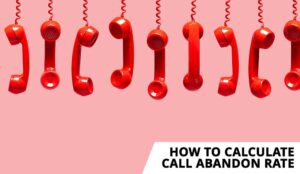What are the best outbound calling times?
There are very few hard-and-fast rules for the best times to call in a contact centre.
The best time to call is when the person called is likely to be most receptive to the call. But when is that?
Pre-arrange a calling time
It sounds obvious, but the best time to call someone is at a time you have agreed with them in advance. If you give someone a sales quote, agree a time when you can call them back to discuss it.
Call during normal hours
There are some common-sense rules about when you should avoid calling on evenings and weekends. See the Outbound calling on weekends and bank holidays article.
Business to consumer calling
Finding the best time to call is key to the success of a sales campaign. Using technology such as a predictive dialler significantly improves efficiency, but diallers cannot perform magic; if the target audience is not available to take your call at the time you make it then the basic contact objective will not be achieved. The ‘best time to call’ varies dependent on your target audience but for the majority of campaigns the success in reaching people – the connect rate – follows the pattern shown below.

It’s not a surprise to see that the best time to call otherwise unstructured data is the late afternoon/early evening. Equally, it doesn’t take a genius to forecast the dip in connect rate in the mid afternoon when many consumers are out shopping and collecting children from school.
Similar peaks and troughs occur when contacting individuals in businesses. In this case the connect-rate troughs are attributed to the targets being
busy doing core business activities…
Targeting your efforts
If you take the previous section on board, you are halfway there. Only halfway? Remember, the crucial balance is to target your data to call your
audience at the best possible time. In the previous graph we showed that there are usually peaks and troughs in the connect rate.
But it is also worthwhile looking at the ‘quality’ of the connections. As shown in the chart below there can be periods when, despite a high connect rate, reaching the right person (Decision Maker Contact – DMC) is low. In the earlier example the connect rate is high in the early morning, but the DMC rate is relatively low.

Avoid key events
There are some dialling times when you are less likely to get a good response.
– During the major soap operas – Eastenders, Coronation Street and Emmerdale.
– During major sporting events – FA Cup, Olympics etc.
After people come home from work
The time shortly after people come home from work, but before the major TV shows start, is often one of the best calling times. This is a window from around 6.00pm to 7.30pm.
Tip
Pretend that your audience is a personal friend – think about when you would pick up the phone and expect to reach them.
Now you know where to focus your efforts.
Customer Segmentation
I learned of one call centre that uses Acorn customer segmentation data to target when is the best time to call. They did this mainly through a process of trial and error and built up a series of assumptions.
For example, a retired couple are likely to be contactable during the working day, while a dual-income couple may not be contactable until the early evening.
Business to Business Calling
Mornings are often better than afternoons
In the morning people are often fresher to take phone calls and are more open minded. In the afternoon they are often rushed to get their day’s work completed before they go home.
Shoulder periods can be productive
Between 08.45 and 9.00 and between 5.30pm and 7.00pm can often be very good times to catch people – in particular senior executives who spend a lot of time in meetings during the business day.
Contributors
- Jonty Pearce of Call Centre Helper
- Ken Reid at Rostrvm Solutions
Author: Jonty Pearce
Published On: 18th Mar 2010 - Last modified: 14th Jun 2024
Read more about - Call Centre Management, Ken Reid, Outbound dialling, Outbound Dialling Guide, Rostrvm
















Connect rate by time of day….when exactly should the customer be called